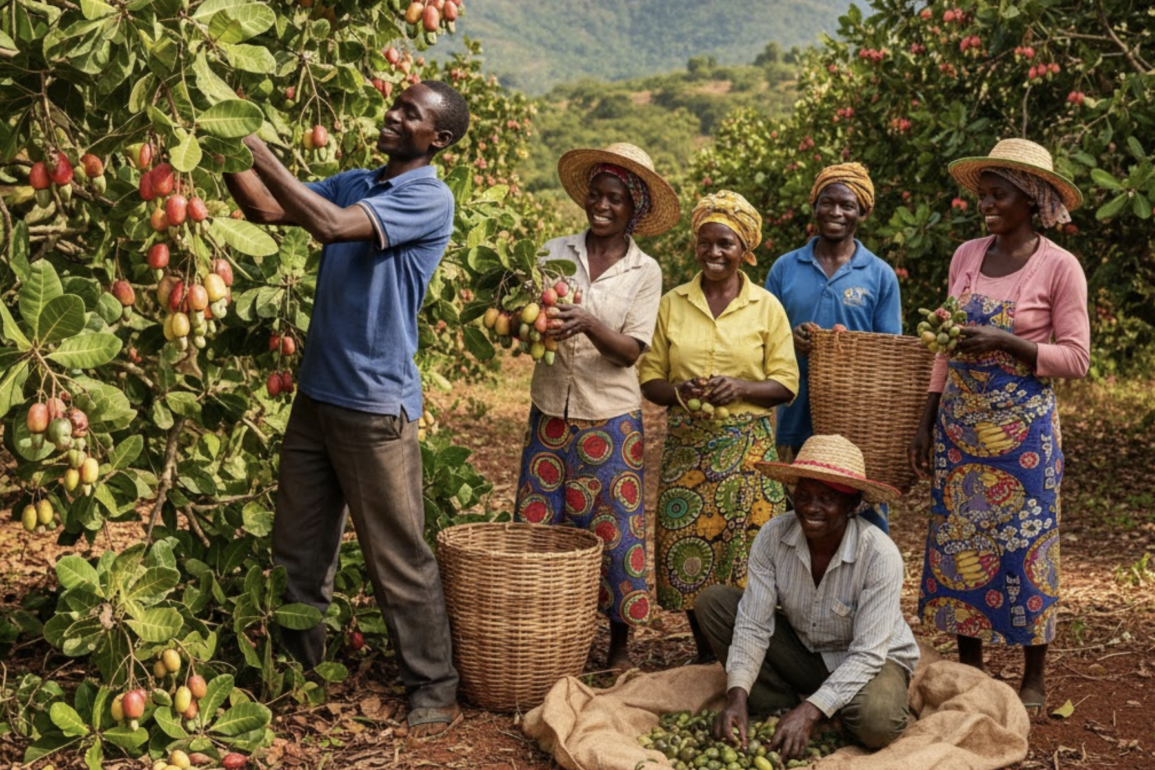In the wake of new findings by Caribou and the Mastercard Foundation, Afcacia sat down with Charlene Migwe, Program Director at Caribou, to explore the research that has drawn global attention to a quiet digital revolution taking place across West Africa.
For decades, agricultural innovation in Africa has been defined by large-scale initiatives — from billion-dollar AgTech platforms to donor-funded training apps promising to bridge the digital divide.
“A cashew farmer in rural Côte d’Ivoire might wait weeks for an agricultural agent, then sell their harvest for half its value because they lack market price information. A young farmer processing soy in Benin cannot access loans because banks don’t serve certain rural areas or cannot reach urban customers without ways to display products,” the report notes.
But the research, titled Social Agriculture in WAEMU: Driving Sustainable Livelihoods and Job Creation, also tells a different story: one unfolding not in air-conditioned offices or conference halls, but in the chat threads, livestreams, and voice notes of young farmers from Côte d’Ivoire to Benin.
“Social agriculture is led by youth and women who are reshaping livelihoods and reimagining a future for farming that is community-driven, digitally enabled, and full of potential to scale,” Migwe told tech reporter Faustine Ngila. “Unlocking this potential will be the next big leap for agrifood systems.”
The study explored how young farmers, processors, and traders in Côte d’Ivoire and Benin’s rice, cashew, and soy sectors are using social media to transform their work. Drawing on interviews with 26 agripreneurs, 23 institutional stakeholders, seven training institutions, and eight focus groups comprising 56 participants, the research reveals how everyday platforms have evolved into an informal yet vital agricultural infrastructure.
It found that Côte d’Ivoire has about 7 million social media users and Benin 2.4 million, with nearly a quarter (24.8%) employing digital tools for agricultural activities. Yet deep inequalities persist: only 11% of rural Benin residents have access to electricity, and women remain 19% less likely to use mobile internet than men, a gap that continues to shape who benefits most from this grassroots digital shift.
But while government programs and donor-backed AgTech apps struggle with adoption rates, young farmers are taking tools already in their hands — WhatsApp, Facebook, TikTok, and Instagram — and transforming them into the backbone of rural economies.
In one corner of Benin, women in soy cooperatives are pooling resources to share smartphones and internet data, forming so-called “DigiQueen” clusters. In rural Côte d’Ivoire, cashew farmers share daily price updates over WhatsApp, helping one another avoid exploitation by middlemen.
Young men are using TikTok to showcase pest control techniques, while women’s groups in remote villages record voice notes in local languages to include members with limited literacy.
Migwe says these examples challenge long-held assumptions about what “innovation” looks like in African agriculture. “Farmers are not passive beneficiaries but active designers of their own digital systems,” she said.
Her team’s findings also highlight the policy blind spots that keep this informal innovation from being recognized. Despite their scale, these grassroots networks remain invisible in national digital strategies, which tend to prioritize formal businesses and specialized platforms. As a result, millions of smallholder farmers, especially women, remain outside the safety nets of regulation, consumer protection, and access to financing.
Here’s the full interview excerpt, edited for clarity.
- Why do you think farmers are turning to social media platforms rather than the purpose-built agricultural apps funded by governments and donors?
Because social media platforms are already part of their daily lives. Farmers don’t need training to use WhatsApp or Facebook; they already use them for family, friends, and community. Agricultural apps, though well-intentioned, often require new logins, stable internet, or literacy levels that many farmers lack. Farmers choose what is familiar, accessible, and flexible.
- What stood out to you most in this research about how farmers are innovating on everyday apps?
The creativity. Farmers are not just using these apps as they are, they are repurposing them into marketplaces, training tools, and trust-building platforms. For example, women pooling resources to share one smartphone, or cooperatives using WhatsApp voice notes in local languages. These innovations show that farmers are not passive beneficiaries but active designers of their own digital systems.
- How do issues like fraud, lack of financing, and gender inequality shape the risks of this grassroots digital revolution?
These issues are the flip side of the opportunity. Fraud discourages farmers from exploring wider markets, while lack of financing limits growth even when demand is strong. Gender inequality is especially worrying: women are 19% less likely to use mobile internet, and without targeted support, they risk being excluded from this transformation. Unless these challenges are addressed, the grassroots revolution could deepen divides instead of closing them.
- What role should governments, donors, or private tech companies play in supporting—without undermining—these farmer-led solutions?
Their role is to strengthen, not replace. Governments should recognize these practices in agricultural policies and provide consumer protection frameworks. Donors can fund training delivered through the platforms farmers already use, not through separate, underutilized systems. Tech companies should integrate features like mobile money or local language voice tools to make platforms safer and more inclusive for farmers.
- How do you see this trend evolving in the next five years, especially as more young people in West Africa come online?
We expect exponential growth. As smartphone access increases and data costs decline, more young people will build businesses directly on social platforms. Farmers will move from simple peer-to-peer exchanges to more professionalized digital agribusinesses. Women’s cooperatives, in particular, could scale their models nationally and regionally. If stakeholders invest wisely, this farmer-led digital ecosystem could reshape agriculture in West Africa within five years.




